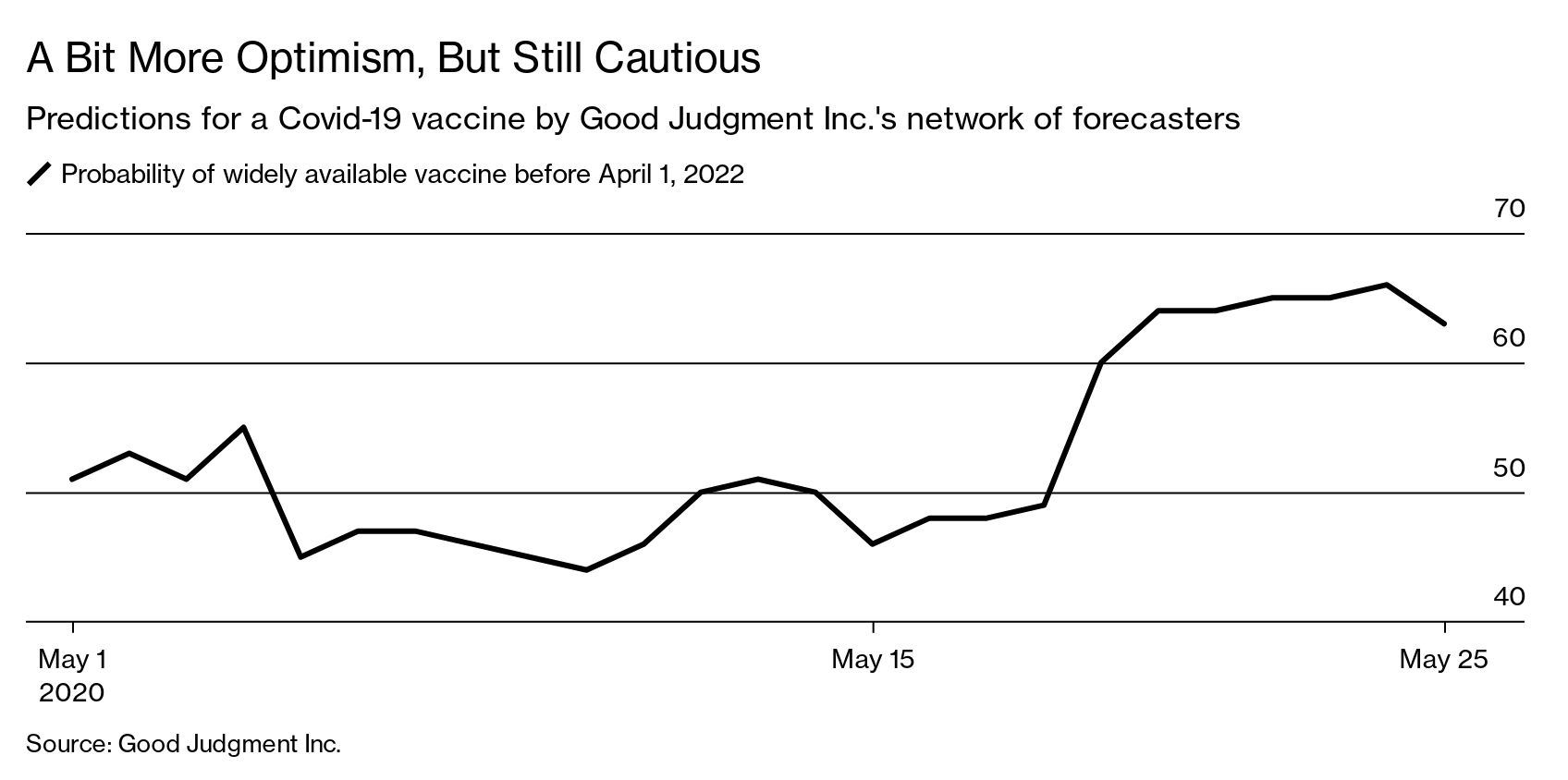May 27, 2020
'Superforecasters' say a COVID-19 vaccine is still a ways off
, Bloomberg News
When Will Covid-19 Vaccine Be Ready and Become Widely Available?
People who get paid to make forecasts say there’s only a 9 per cent chance that there will be a widely available vaccine for COVID-19 before next April.
That’s according to Good Judgment Inc., a company that maintains a global network of forecasters to make predictions for clients based on publicly available evidence.
Good Judgment’s forecasters are more pessimistic than many authorities, ranging from President Trump to Bill Gates, but their caution is worth heeding. On Feb. 4, when only 25,000 cases of COVID-19 had been reported to the World Health Organization worldwide and U.S. officials were playing down the risk of a pandemic, the forecasters said there was a 75 per cent chance of more than 200,000 cases by March 20. That was correct. Actual number on that date: 266,000.
Good Judgment asked its network, “When will enough doses of FDA-approved COVID-19 vaccine(s) to inoculate 25 million people be distributed in the United States?” As of May 25, the forecasters put a 9 per cent probability on that happening by March 31, 2020; a 34 per cent probability on its happening by Sept. 30, 2021; a 63 per cent probability on its happening by March 31, 2022; and a 37 per cent probability on its happening sometime after that, if ever.
The forecasters—who work on contract, and whom the New York-based company dubs Superforecasters—don’t have any inside information. They sift through news reports, scientific data, and whatever else they can get their hands on to make their best guesses as to what the future holds. They live and work on six continents and have backgrounds in a variety of fields, including, according to the company’s website, finance, statistics, political science, intelligence analysis, science, engineering, and technology. Most of their forecasts are for private clients, but the vaccine question and some others are public because they were paid for by a charity, Open Philanthropy.
Good Judgment was co-founded by Philip Tetlock, a University of Pennsylvania political scientist who studies why experts are often wrong and how some manage to do better. He found that good forecasters consult a wide range of evidence and are quick to revise their forecasts when better information comes in. Warren Hatch, the chief executive officer, who does some forecasting himself, says, “We want to check our other beliefs at the door, whether they’re religious or political.”

As pessimistic as the forecast for a vaccine might appear, the May 25 outlook from Good Judgment is much brighter than the outlook on May 18, when the forecasters saw a 51 per cent probability that a vaccine would not be widely available until April 1, 2022, or after. The company’s forecasts are based on the median of individual forecasts, with certain adjustments.
Other forecasts, as of May 25: There is a 51 per cent probability that the Food and Drug Administration will approve a drug or biological product for the treatment of COVID-19 before July 1, 2021. And there is a 99 per cent probability that the U.S. gross domestic product will be smaller in the second quarter of 2021 than it was in the second quarter of 2019.


